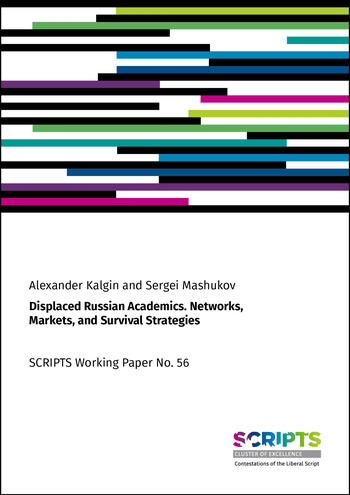Displaced Russian Academics. Networks, Markets, and Survival Strategies
Alexander Kalgin and Sergei Mashukov
This study examines the challenges faced by Russian émigré academics, particularly in the field of social sciences, as they attempt to integrate into new academic environments that operate on different constitutive principles. Using the core-periphery distinction, we analyse their struggle to move from the semi-periphery to the core of Western science. This research explores adaptation strategies employed to sustain academic careers in exile – what we call “academic survival”. Drawing on economic sociology’s distinction between markets and networks, we analyse how Russian academics navigate the more market-oriented Western academia, unlike their network-driven Russian academic environment. The study identifies two key survival strategies: reliance on strong and weak ties and community-based migration. While strong ties provide initial security and emotional support, weak ties facilitate access to new academic opportunities. Additionally, some academics have relied on collective migration strategies, forming tightly-knit academic units that facilitate mutual support and professional continuity

